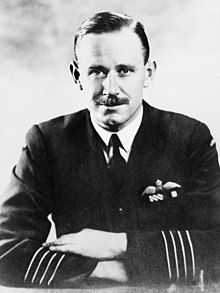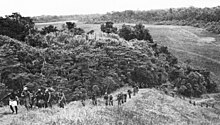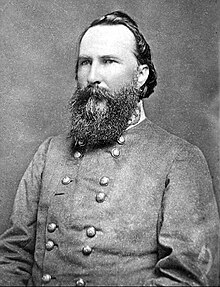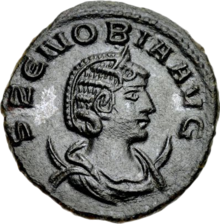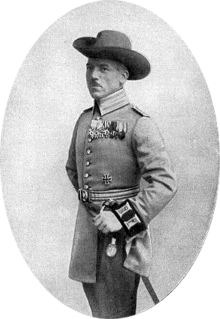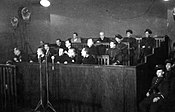
Back Portaal:Geskiedenis Afrikaans Portal:Gschicht ALS በር:ታሪክ Amharic Ingang:Stǣr ANG بوابة:التاريخ Arabic قيسارية:تاريخ ARY بوابة:التاريخ ARZ Портал:Тарих AV Tuveli:Izvopa AVK Portal:Tarix Azerbaijani
The History Portal
History (derived from Ancient Greek ἱστορία (historía) 'inquiry; knowledge acquired by investigation') is the systematic study and documentation of the human past.
The period of events before the invention of writing systems is considered prehistory. "History" is an umbrella term comprising past events as well as the memory, discovery, collection, organization, presentation, and interpretation of these events. Historians seek knowledge of the past using historical sources such as written documents, oral accounts, art and material artifacts, and ecological markers. History is incomplete and still has debatable mysteries.
History is an academic discipline which uses a narrative to describe, examine, question, and analyze past events, and investigate their patterns of cause and effect. Historians debate which narrative best explains an event, as well as the significance of different causes and effects. Historians debate the nature of history as an end in itself, and its usefulness in giving perspective on the problems of the present.
Stories common to a particular culture, but not supported by external sources (such as the tales surrounding King Arthur), are usually classified as cultural heritage or legends. History differs from myth in that it is supported by verifiable evidence. However, ancient cultural influences have helped create variant interpretations of the nature of history, which have evolved over the centuries and continue to change today. The modern study of history is wide-ranging, and includes the study of specific regions and certain topical or thematic elements of historical investigation. History is taught as a part of primary and secondary education, and the academic study of history is a major discipline in universities.
Herodotus, a 5th-century BC Greek historian, is often considered the "father of history", as one of the first historians in the Western tradition, though he has been criticized as the "father of lies". Along with his contemporary Thucydides, he helped form the foundations for the modern study of past events and societies. Their works continue to be read today, and the gap between the culture-focused Herodotus and the military-focused Thucydides remains a point of contention or approach in modern historical writing. In East Asia, a state chronicle, the Spring and Autumn Annals, was reputed to date from as early as 722 BC, though only 2nd-century BC texts have survived. (Full article...)
Featured picture
Did you know (auto generated)

- ... that a massive smallpox epidemic struck the Pacific Northwest shortly before historical records were kept?
- ... that Hanning Schröder, who in the 1930s played historical instruments in the Harlan Trio together with his wife, was recognised as Righteous Among the Nations?
- ... that the cultural scholar Hermann Bausinger wrote a book about the history of literature from Swabia from the 18th century to the present, published for his 90th birthday?
- ... that the Chinese government began compiling an official history of the Qing dynasty in 2002, but as of 2023 a protracted political review is forestalling its publication?
- ... that writer Malcolm Neesam was awarded the Freedom of the Borough of Harrogate, England, by the town council for services to local history?
- ... that when US Army lieutenant general Carl H. Jark retired in 1964, Congressman Henry B. González of Texas honored him by reading Jark's entire career history into the Congressional Record?
Witold Pilecki (13 May 1901 – 25 May 1948; Polish: [ˈvitɔlt piˈlɛt͡skʲi] ⓘ; codenames Roman Jezierski, Tomasz Serafiński, Druh, Witold) was a Polish World War II cavalry officer, intelligence agent, and resistance leader.
As a youth, Pilecki joined Polish underground scouting; in the aftermath of World War I, he joined the Polish militia and, later, the Polish Army. He participated in the Polish–Soviet War which ended in 1921. In 1939, he participated in the unsuccessful defense of Poland against the German invasion and shortly afterward, joined the Polish resistance, co-founding the Secret Polish Army resistance movement. In 1940, Pilecki volunteered to allow himself to be captured by the occupying Germans in order to infiltrate the Auschwitz concentration camp. At Auschwitz, he organized a resistance movement that eventually included hundreds of inmates, and he secretly drew up reports detailing German atrocities at the camp, which were smuggled out to Home Army headquarters and shared with the Western Allies. After eventually escaping from Auschwitz in April 1943, Pilecki fought in the Warsaw Uprising of August–October 1944. Following its suppression, he was interned in a German prisoner-of-war camp. After the communist takeover of Poland, he remained loyal to the London-based Polish government-in-exile. In 1945, he returned to Poland to report to the government-in-exile on the situation in Poland. Before returning, Pilecki compiled his previous reports into Witold's Report to detail his Auschwitz experiences, anticipating that he might be killed by Poland's new communist authorities. In 1947, he was arrested by the secret police on charges of working for "foreign imperialism" and, after being subjected to torture and a show trial, was executed in 1948. (Full article...)On this day
May 18: Haitian Flag Day in Haiti (1803); Day of Remembrance for the Victims of Crimean Tatar Genocide in Ukraine
- 1302 – Armed insurrectionists massacred the occupying French garrison in Bruges, Flanders, killing approximately 2,000 people.
- 1695 – An earthquake measuring Ms7.8 struck Shanxi Province in northern China, resulting in at least 52,600 deaths.
- 1927 – Disgruntled school board treasurer Andrew Kehoe set off explosives with timers and a rifle (aftermath pictured), causing the Bath School disaster in the Bath Consolidated School in Michigan, killing 44 people in the deadliest mass murder in a school in United States history.
- 1952 – First Indochina War: Viet Minh forces overran a French and Laotian garrison at Muong Khoua, leaving only four survivors.
- 2009 – The Sri Lanka Army killed Velupillai Prabhakaran, the leader and founder of the Liberation Tigers of Tamil Eelam, to bring an end to the 26-year Sri Lankan Civil War.
- Thomas Midgley Jr. (b. 1889)
- Ester Boserup (b. 1910)
- Jean-François Théodore (d. 2015)
Selected quote
"Strike an enemy once and for all. Let him cease to exist as a tribe or he will live to fly in your throat again".
— Shaka, 19th century Zulu king
Related portals
More Did you know...
- ... that the anti-religious campaign culminating in the Stalinist show trial of the Kraków Curia (pictured) led to the imprisonment of 123 Polish Roman Catholic priests in just one year?
- ... that Confederate brigadier general Alfred E. Jackson was pardoned by President Andrew Johnson because of his kindness toward Johnson's family during the Civil War?
- ... that after HMS Porcupine was nearly split in two by a torpedo, the halves were nicknamed HMS Pork and HMS Pine?
- ... that the Experiment was a boat powered by horses running on a treadmill and propelled by a then-novel type of screw propeller?
- ... that one of the highest-ranking generals in China was injured in battle nine times?
- ... that in Mesopotamian mythology, the Apkallu were sent by the god Enki, from Dilmun to teach human beings various aspects of civilization?
- ... that Karl Marx's theory of historical trajectory attempted to prove the long-term unsustainability of capitalism?
- ... that in November 1921, the schooner Cymric collided with a tram in Dublin?
Topics
Categories

History • By period • By region • By topic • By ethnic group • Historiography • Archaeology • Books • Maps • Images • Magazines • Organizations • Fictional • Museums • Pseudohistory • Stubs • Timelines • Chronology • People • Wikipedia historians
WikiProjects
![]() WikiProject History •
Ancient Near East • Australian History • Classical Greece and Rome • Dacia • Former countries • History of Canada • Chinese history • European history • Heraldry and vexillology • Indian history • Jewish history • Medieval Scotland • Mesoamerica • Military history • Middle Ages • History of Science
WikiProject History •
Ancient Near East • Australian History • Classical Greece and Rome • Dacia • Former countries • History of Canada • Chinese history • European history • Heraldry and vexillology • Indian history • Jewish history • Medieval Scotland • Mesoamerica • Military history • Middle Ages • History of Science
WikiProject Time • Days of the Year • Years
WikiProject Biography • Composers • Political figures • Saints • United States Presidents
Things you can do
 |
Here are some tasks awaiting attention:
|
Associated Wikimedia
The following Wikimedia Foundation sister projects provide more on this subject:
-
Commons
Free media repository -
Wikibooks
Free textbooks and manuals -
Wikidata
Free knowledge base -
Wikinews
Free-content news -
Wikiquote
Collection of quotations -
Wikisource
Free-content library -
Wikiversity
Free learning tools -
Wiktionary
Dictionary and thesaurus
© MMXXIII Rich X Search. We shall prevail. All rights reserved. Rich X Search



